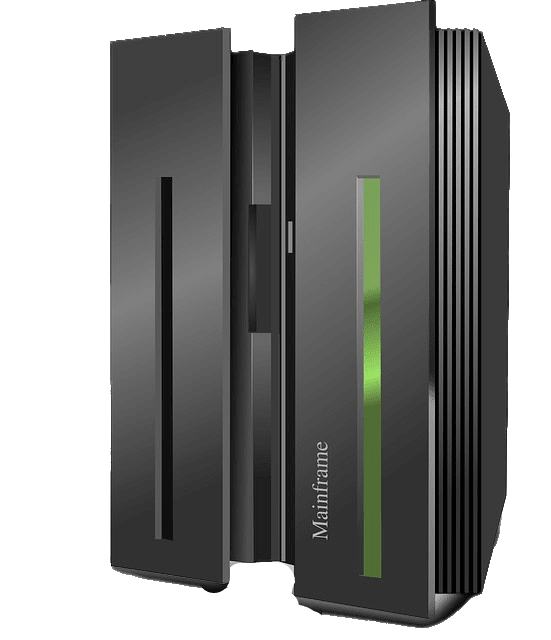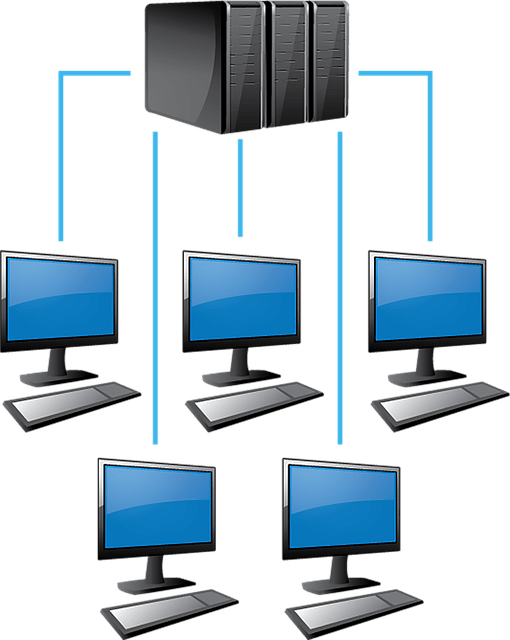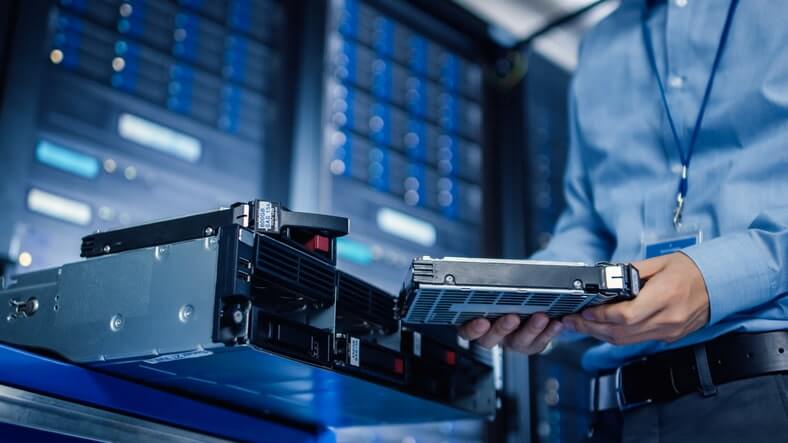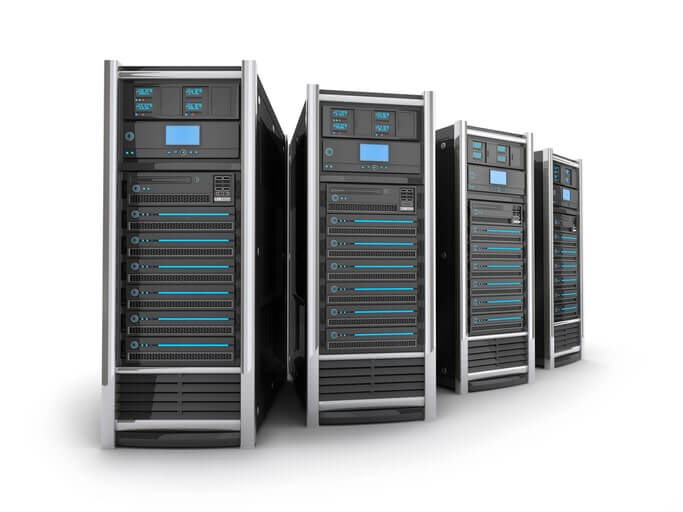SMB grade Server Support Services
Troubleshooting and resolving server related issues

Server assistance provided by experienced consultants and technicians

Server system overload
Error with configuration settings
Server hard drive error
Server motherboard failure
Power related issues
Air quality and temperature failures
and more........
Primary Responsibility of our Server Engineers
To set up and manage desktop and server infrastructure so that applications may be accessed within a company. Troubleshooting problems that arise at the server and PC levels frequently falls under the purview of this IT support function.

Server operating systems we support
Windows Server Support
First and foremost we support Windows Server operating systems for servers from 2003 to the mopst recent. It is the most prevalent operating system for servers and we are a Microsoft House and a Microsoft Partner.
MacOS Server Support
Some of our server technicians are proficient in supporting MacOS operating systems for servers. We currently support several clients with servers running MacOS operating systems using technicians and server specialists.
Linux Server Support
Our team includes at least one person who is experienced with and ready to address servers utilizing a Linux operating system. We have resolved several Linux related issues over the years mostly on an emergency basis.
Supporting and performing upgrades to the following versions of Windows Server
Windows Server 2003 Support
Windows Server 2003 is a Microsoft server operating system which went to market April 24, 2003. It’s predecessor was Windows Server 2000. Windows Server 2003 R2 is the update which became available on December 6, 2005 for IA-32 and x64 platforms, but not for IA-64. It was succeeded by Windows Server 2008.
If you are still running windows server 2003, consider upgrading to a newer version. 1CS can oversee and carry out the migration. Our team of server specialists can will setup and support windows server 2012 and beyond.
Windows Server 2008 Support
Windows Server 2008 vR2 operates on a 64 bit mode but with Hyper 2.0 which combined matches the capability of virtual servers. It is compatible with 64-bit bus architectures of server hardware, thus giving this operating system the ability to utilize 100% of hardware specific functions such as virtualization or scalability. It showcases an array of features including power management, supports live migration of VM, advanced platform for web and software apps and it has a simple virtual desktop infrastructure. Unfortunately, this Windows operating system will not work with 32-bit servers.
If you continue to use windows server 2008, consider upgrading to a more recent version. Our team will oversee and carry out the upgrade. Our server specialists can will setup and support windows server 2012 and beyond.
Windows Server 2012 Support
Windows Server 2012 was run by many of Canada’s data centers when it was one of the more recent version, not so much anymore. However, it is still used by SMBs who have not yet upgraded to a newer version. At the time of it’s release, it provided an in-depth cloud platform, cloud solutions which yielded cost savings and increased efficiencies compared to previous versions, and supports “Bring Your Own Device” for a mobile workforce. It’s release introduced a new class server, with users enjoying hundreds of new features and enhancements including user experience, automation, virtualization, networking, data storage, cloud computing and much more.
If you continue to use windows server 2012, consider upgrading to a more recent version.
Windows Server 2016 Support
Windows Server 2016 had many new features compared to it’s predecessor Windows Server 2012:
- Active Directory Federation Services
- Windows Defender
- Remote Desktop Services
- Storage Services
- Failover Clustering
- Web Application Proxy
- IIS 10
- Windows Powershell 5.1
- Windows Server Containers
- And More
If you continue to use windows server 2016, consider upgrading to a more recent version.
Windows Server 2019 Support
Windows Server 2019 has many new features compared to it’s predecessor Windows Server 2016:
- Windows Admin Center
- Desktop experience
- System Insights
- Server Core App Compatibility Feature on Demand
- Windows Defender Advanced Threat Protection (ATP)
- Security with Software Defined Networking (SDN)
- Shielded Virtual Machines improvements
- HTTP/2 for a faster and safer Web
- Storage Migration Service
- Storage Spaces Direct
- Storage Replica
- Failover Clustering
- Linux containers on Windows
- Built-in support for Kubernetes
- Container improvements
- Encrypted Networks
- Network performance improvements for virtual workloads
- Low Extra Delay Background Transport
- Windows Time Service
- High performance SDN gateways
- New Deployment UI and Windows Admin Center extension for SDN
- Persistent Memory support for Hyper-V VMs
If you continue to use windows server 2019, consider upgrading to a more recent version.
Windows Server 2022 Support
Windows Server 2022 has many new features compared to it’s predecessor Windows Server 2019:
- Secured-core server
- Hardware root-of-trust
- Firmware protection
- UEFI secure boot
- Virtualization-based security (VBS)
- Transport: HTTPS and TLS 1.3 enabled by default on Windows Server 2022
- Secure DNS: Encrypted DNS name resolution requests with DNS-over-HTTPS
- Server Message Block (SMB): SMB AES-256 encryption for the most security conscious
- SMB: East-West SMB encryption controls for internal cluster communications
- SMB Direct and RDMA encryption
- SMB over QUIC
- Azure Arc enabled Windows Servers
- Windows Admin Center
- Azure Automanage – Hotpatch
- Application platform improvements
- Nested virtualization for AMD processors
- Microsoft Edge browser
- UDP performance improvements
- TCP performance improvements
- Hyper-V virtual switch improvements
- Adjustable storage repair speed
- Faster repair and resynchronization
- Storage bus cache with Storage Spaces on standalone servers
- ReFS file-level snapshots
- SMB compression
Need help with Windows Server 2022? We can help.

Upgrading to Windows Server 2022 may first require an upgrade to an earlier version of Windows Server
The kinds of servers we support
On-Premises Server
Supporting servers situated within the same office as the people who are accessing it. We support these local servers from a software and hardware perspective. Bringing in the manufacturer when necessary.
Hosted Server
Assisting with servers located offsite using hosted server service. With hosted servers, the host usually takes care of hardware issues. For these instances, we can help with software related issues.
Virtual Machine
Often referred to as a cloud server, Virtual Machines require support for issues affecting cloud architecture or maintenance functions such as those addressing user permissions.
Additional Server Support Information
What's a Server
A server is a computer application which accepts requests from another computer and gives responses based on those requests. A server may reside on any computer, although, it is common that it resides on a dedicated computer. Dedicated to running only the server application.
A server provides access to files located on it. Such that multiple computers can access one set of files simultaneously. Files such as documents, databases, images, videos or other file types. Traditionally, a server would need to be in close proximity to the computer accessing it. More recently, servers have moved from server rooms to the internet with the growth of hosted environments and cloud based services. Information formally stored on a physical server in a nearby room is now located offsite, accessible through the internet.
Server Types we Support
- file server
- email server
- print server
- database server
- web server
- DNS server
- DHCP server
- FTP server
Server Maintenance we Perform
1CS provided server maintenance often consists of:
- updates to operating system and critical applications
- security patching for programs
- addressing areas which lead to poor performance
- data management
- user management
- other
Why use a Server
One central place to store and organize data which is accessed by multiple people. Managing data in this fashion protects businesses from the risk of data loss.
Why use a Cloud Server
Many businesses are choosing to relocate their data, applications, telecommunications and computing power to a cloud environment for a multitude of reasons:
- reduced costs
- reduced infrastructure
- reduced virus removal
- firewall management
- powerful mail hosting
- reduced maintenance
- increased security
- climate controlled environment (hosted)
- reliable, monitored and highly secure
- customization
- access to latest technologies
- scalability, add users efficiently as business grows
Aside from saving data to a cloud server, programs and applications are operated from a cloud server. Instead of your data, programs and applications residing on a server in an office, they reside on a server in a remote location accessed over the internet.
Need cloud server support? Contact us.


